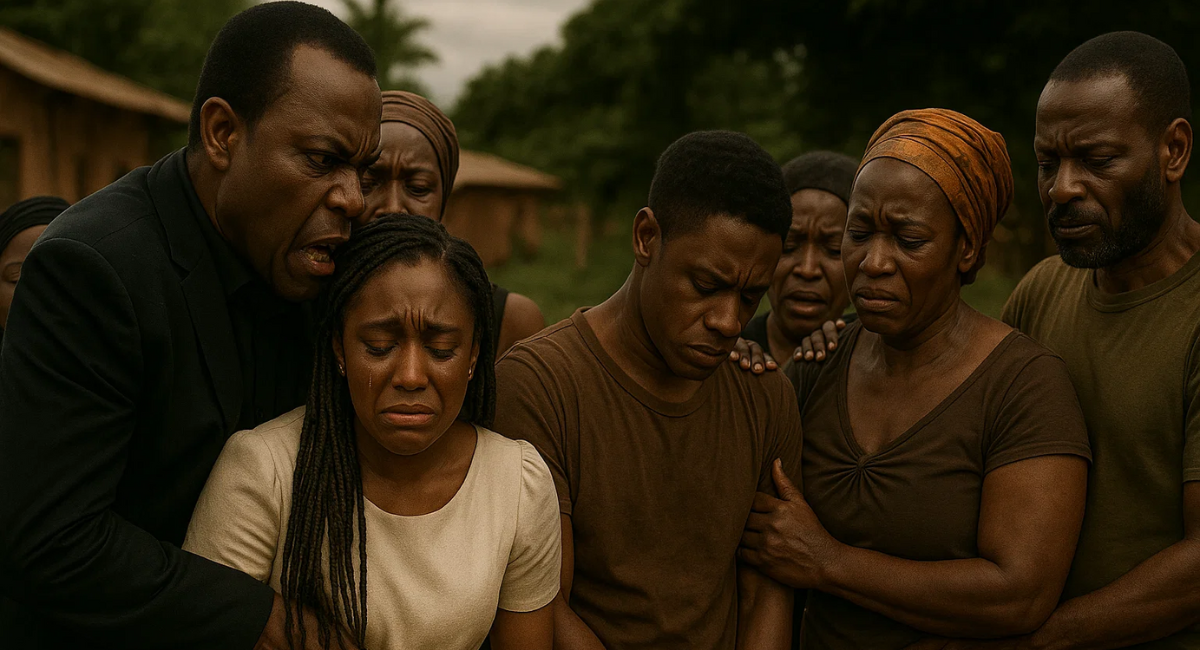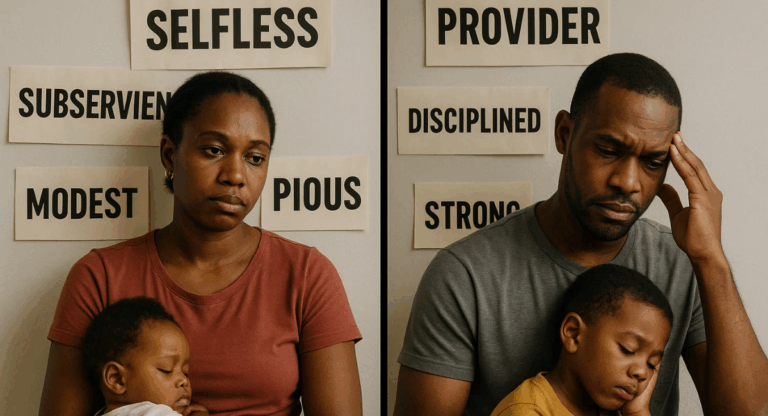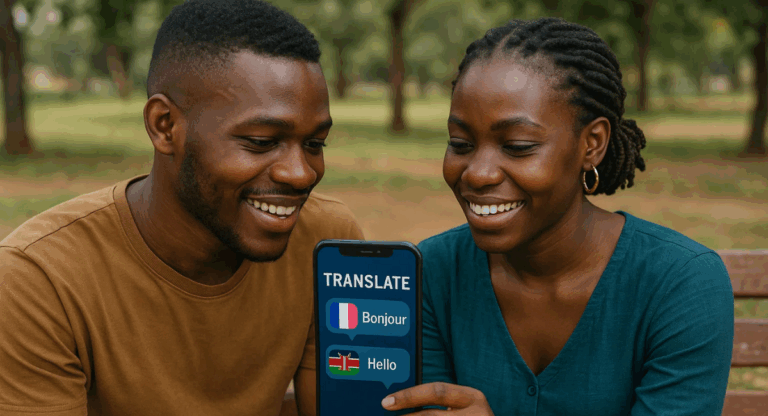Love Without Approval: The African Rebels

In many African communities, love is rarely a private affair between two people. It comes with traditions to honor, families to answer to, and a society that’s always watching. It must be acknowledged, supported, and often blessed by those around you. Parents aren’t simply told about it; they’re part of the process from the start. Elders are asked to guide. And sometimes, even religious leaders have a say.
But love doesn’t always walk the path laid out for it. Some people fall for partners their families would never choose. People from different tribes, unfamiliar cultures, or even opposing faiths. These are not impulsive choices. These are deep, thoughtful connections that refuse to follow the script. Those who pursue such relationships are not looking to rebel for the sake of drama. They are simply following their hearts, even when it costs them everything. These are the quiet rebels. People who love with intention, not disrespect.
Download Pendova on Google Playstore:

iOS Users can access Pendova app on web.pendova.com
1. Cultural Conformity Pressure
Across the continent, love is often judged by how closely it mirrors tradition. Families still expect potential partners to come from the same tribe, speak the same language, and share similar customs. In many homes, it’s less about the person and more about where they come from.
Loving someone outside those lines is often viewed as a rejection of heritage. Even when the relationship is kind, respectful, and healthy, people may dismiss it because it doesn’t “fit.” Love becomes a loyalty test, and choosing someone outside the expected mold feels like betraying one’s roots.
2. Interfaith and Intertribal Barriers
Even with modern life influencing the way people think, tribal and religious lines continue to divide. Falling in love with someone from a different faith or tribe can feel like walking into a storm. What should be a personal connection becomes a source of community tension.
Some families see these unions as a threat. There’s fear of losing culture, fear of children growing up without a clear identity, and fear of offending ancestors or spiritual beliefs. It forces couples into a constant state of explaining themselves. Having to defend your love to everyone around you, again and again, wears people down. And yet, many still hold on.
3. Familial Consent Norms
In most African households, family approval is more than just a nice gesture. It is treated as a necessary seal. Without it, love is seen as illegitimate, even shameful. You could be fully grown, financially stable, and deeply in love, but still be expected to “wait for blessings.”
Some wait for years. Others eventually give up hope that their families will ever accept the person they’ve chosen. The pressure to choose between your heart and your blood family can be suffocating. It’s not always about obedience. Sometimes, it’s just the deep need to feel seen and supported by those who raised you.
4. Gender-Based Expectations
The weight of disapproval is not shared equally. In many cases, men who go against cultural expectations are given more room to decide for themselves. People may disagree, but they’re still allowed space to figure things out.
But when it comes to women, the judgment is often far more severe. When a woman loves without approval, it is often seen as shameful, even rebellious. She’s accused of disrespecting her family, of forgetting where she comes from. In some homes, she may be cut off or disowned far quicker than a male sibling who made the same choice. The emotional cost is heavier, and the journey feels much more alone.
5. Community-Driven Judgment
The African community is powerful. It functions like an extended family, and it doesn’t stay silent. Gossip spreads quickly. Strangers feel entitled to have opinions about your relationship. Some even reach out to your parents, offering advice or pressure disguised as concern.
Sometimes, even supportive family members shift their stance out of fear. The pressure to avoid public shame becomes overwhelming. People stop asking how the relationship feels and start asking how it looks. That kind of pressure from the outside can put a serious strain on even the strongest relationships.
6. Forced Self-Reliance
When couples move forward without family blessings, they often lose more than just approval. They lose financial, emotional, and sometimes physical support. Some are cut off from allowances, school fees, shared property, or housing. They have no choice but to navigate life by themselves.
This forced independence is a harsh awakening. It means building a life from the ground up while carrying the extra weight of societal judgment. For many, this is where love meets resilience. They grow up quickly. They learn to lean on each other in ways others may never understand.
7. Lasting Family Estrangement
Sometimes the break with family doesn’t heal. Some families go completely silent. Others pretend the relationship doesn’t exist. Even when a couple builds a beautiful life together, the absence of their family shadows their milestones.
Holidays become awkward. Family events are missed. Grandparents may never meet their grandchildren. And while the couple keeps moving forward, a quiet pain lingers. It stays under the surface, showing up during birthdays, weddings, or the ordinary moments that could have been shared.
8. Digital Safe Spaces
Offline, the support may be limited. But online, a different kind of community is forming. People use Instagram, TikTok, and closed forums to tell their stories, ask for advice, or simply feel less alone. These platforms offer what tradition sometimes withholds empathy, visibility, and solidarity.
Someone in Lusaka might read a post from someone in Nairobi and find strength in shared struggle. These digital spaces allow people to connect not by tribe or religion, but by honesty. In their way, they are becoming love homes that don’t ask for permission.
9. Quiet Cultural Resistance
Loving without approval doesn’t always involve protests or confrontations. Often, it’s subtle. It happens in the daily decision to stay with someone despite what others think. In simply deciding to hold hands where others can see. In the quiet agreement to keep showing up for each other.
This kind of love quietly resists the systems that try to box it in tribal expectations, gender roles, religious rules, and class lines. These couples may not be seeking to start revolutions. But by choosing to stay, they ask a powerful question. What if love, in its pure and honest form, is already enough?
10. Desire for Acceptance
People often mistake these couples for rebels looking to make a statement. But the truth is, most just want peace. They are tired of pretending and are not trying to burn down tradition. They are asking to belong inside it, without hiding who they love. Also they want to come home without being shamed. They want family, not conflict. And they want their love to be seen as valid, not just tolerated. It’s not rebellion. It’s a longing for inclusion.
Final Thoughts
To love without approval in Africa is to walk a complicated path. That means holding your partner’s hand while dodging judgment from every direction. It means holding on to happiness while constantly fighting off the hurt that comes with it. It means constantly explaining yourself, sometimes even to yourself.
But it also means living truthfully. These African rebels are not enemies of culture. They are its future. They are asking for a room within it, not outside it. Their stories are not just about romance. They are about freedom, dignity, and the courage to choose for yourself. In a world that often tells you who you’re allowed to love, choosing for yourself might just be the most powerful thing of all.
Follow our Social Medias:







